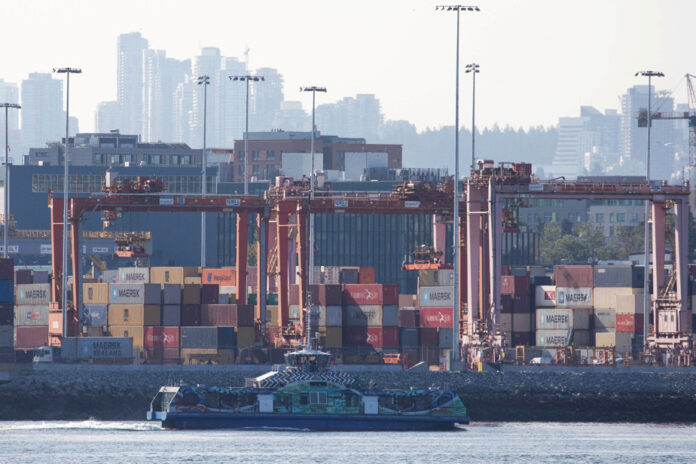Negotiators for the British Columbia longshoremen’s union will present the tentative agreement reached with the employers to their members on Wednesday. Union members will vote Thursday and Friday on whether to ratify the proposal or not.
If the 7,400 longshoremen involved accept the agreement, as recommended by their union’s negotiating committee, the labor dispute that has been going on for several weeks now in British Columbia could finally come to an end.
The union, the International Longshore and Warehouse Union Canada, says on its website that the vote on the tentative agreement will take place Thursday and Friday. He reiterated that the union executive recommends that the members ratify the proposal.
But before that, on Wednesday, a meeting will be held in the morning at the union’s headquarters in Vancouver, where members of the bargaining committee will answer questions from workers about the proposed collective agreement.
Two tentative agreements were subsequently rejected by the union: the first by the union executive, the second by the members.
Thus, labor relations specialists are calling for caution before the vote is held on the most recent agreement in principle. According to University of Manitoba associate professor of labor studies David Camfield, further rejection by union members remains a possibility.
“I think what we’ve seen [with the rejection of the second tentative agreement] is a reminder that no one should take for granted what the outcome of a ratification vote will be,” Camfield said.
“I think that’s the most notable feature of this conflict: workers’ expectations are higher than they would have been several years ago, and they’re not willing to settle for what’s available to them. is proposed. »
The union and the BC Maritime Employers Association reached the new agreement with the help of the Canada Industrial Relations Board, after federal Labor Minister Seamus O’Regan asked the board to decide if a negotiated settlement was still possible or if an agreement should be imposed for both parties.
Mr. Camfield observed that the state of the labor market, with low unemployment rates, can contribute to workers feeling confident enough to reject deals. The rising cost of living could also raise their expectations for compensation and other benefits.
Labor lawyer for the union side, Don Eady, recalls that as in the British Columbia ports dispute, members of the Metro grocery store union in Ontario rejected the agreements reached at the bargaining table, which shows that workers are exercising their legal rights to get what they believe is right.
Eady noted that some people may have been surprised when the union rejected two deals, but that doesn’t mean the bargaining process is broken.
“Unions have the right to put in place whatever internal processes they want for the negotiation and approval of collective agreements,” he said.
The attorney nuanced that while members rejecting a union-brokered deal isn’t typical, it can and should sometimes happen to protect workers from threats like automation and the rising cost of the life.
“If a company is able to circumvent the collective agreement by contracting out work, bringing in other people or automating operations, it affects the overall job security of union members, as much today as in the next few years,” he said.
Current inflation is another factor causing workers to demand more of employers, Eady said.
“Nobody knows if inflation will be 20% or 2% by the time you get to the fourth or fifth year of an agreement,” he said. So longer-term agreements are problematic if they contain a fixed increase in cents or dollars per hour. »
“All of these things put pressure on union members and employees in general, and the only way for them to really fight back is to go on strike and fight for their rights. »















